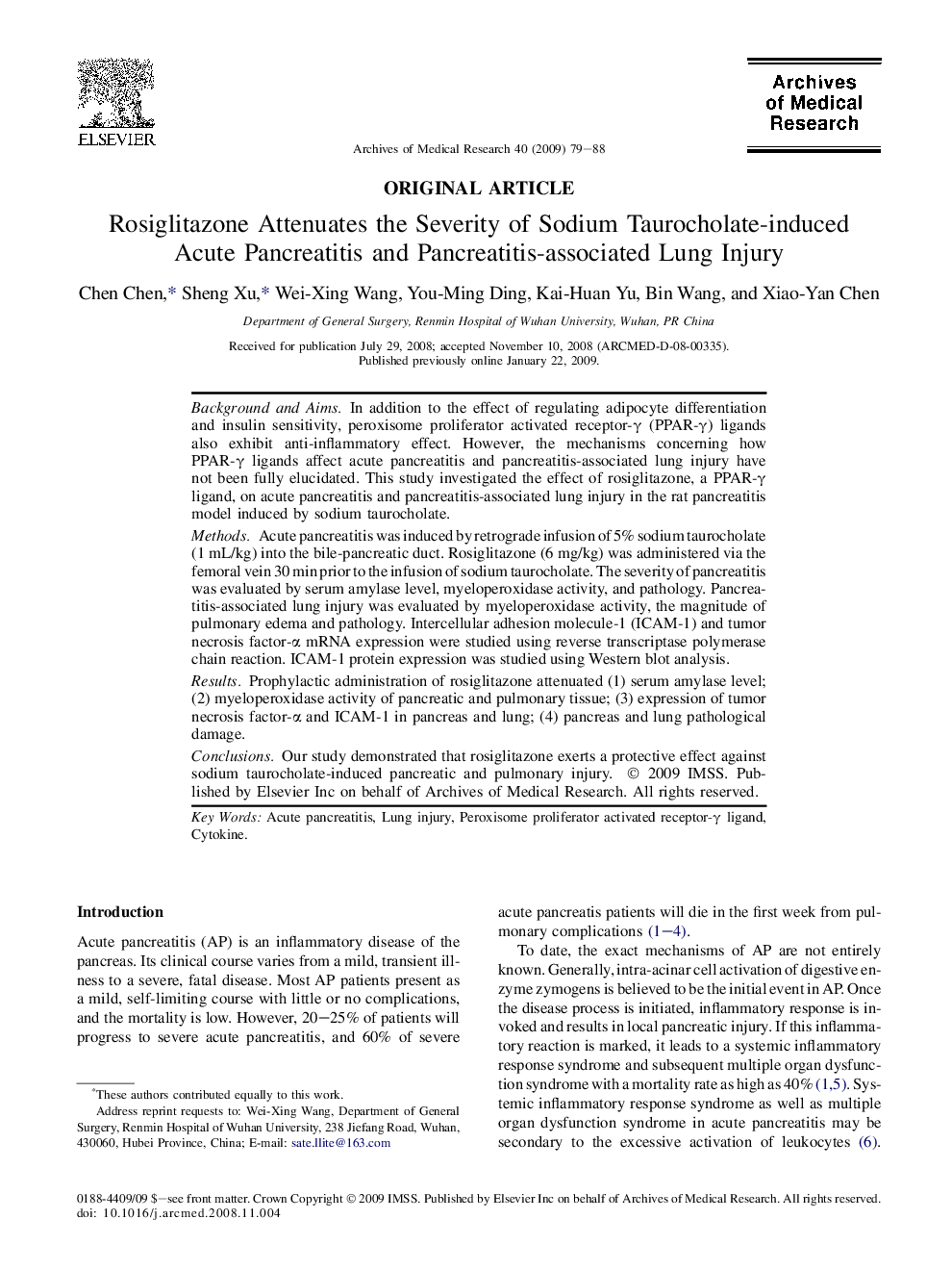| Article ID | Journal | Published Year | Pages | File Type |
|---|---|---|---|---|
| 3447583 | Archives of Medical Research | 2009 | 10 Pages |
Background and AimsIn addition to the effect of regulating adipocyte differentiation and insulin sensitivity, peroxisome proliferator activated receptor-γ (PPAR-γ) ligands also exhibit anti-inflammatory effect. However, the mechanisms concerning how PPAR-γ ligands affect acute pancreatitis and pancreatitis-associated lung injury have not been fully elucidated. This study investigated the effect of rosiglitazone, a PPAR-γ ligand, on acute pancreatitis and pancreatitis-associated lung injury in the rat pancreatitis model induced by sodium taurocholate.MethodsAcute pancreatitis was induced by retrograde infusion of 5% sodium taurocholate (1 mL/kg) into the bile-pancreatic duct. Rosiglitazone (6 mg/kg) was administered via the femoral vein 30 min prior to the infusion of sodium taurocholate. The severity of pancreatitis was evaluated by serum amylase level, myeloperoxidase activity, and pathology. Pancreatitis-associated lung injury was evaluated by myeloperoxidase activity, the magnitude of pulmonary edema and pathology. Intercellular adhesion molecule-1 (ICAM-1) and tumor necrosis factor-α mRNA expression were studied using reverse transcriptase polymerase chain reaction. ICAM-1 protein expression was studied using Western blot analysis.ResultsProphylactic administration of rosiglitazone attenuated (1) serum amylase level; (2) myeloperoxidase activity of pancreatic and pulmonary tissue; (3) expression of tumor necrosis factor-α and ICAM-1 in pancreas and lung; (4) pancreas and lung pathological damage.ConclusionsOur study demonstrated that rosiglitazone exerts a protective effect against sodium taurocholate-induced pancreatic and pulmonary injury.
